Here are links to a few recent articles by LML External Fellow Mark Buchanan.
The aromatic universe Nature Physics 15, 984; 1 October 2019
The interstellar medium, near our own galaxy or in others far away, is sparse and cold, mostly made of gas and dust. But it also contains a bewildering range of complex organic molecules, primarily containing carbon. These polycyclic aromatic hydrocarbons include fullerenes, and seem to play a crucial role in the eventual formation of stars and the evolution of galaxies. This essay explores what we know about this “aromatic universe,” much of which arises through chemistry not too different from combustion on Earth.
Public transit can still reduce traffic, if done in the right way Bloomberg Opinion, 14 August, 2019
As more of the world’s population shifts into cities, traffic congestion is becoming an ever-larger problem. One obvious idea to decrease congestion is better public transportation, but economic experts have been skeptical of how much this can help. New research based on statistical patterns in traffic demand and the availability of public transportation suggests otherwise. This essay examines why the key to making public transport reduce automobile traffic lies in making the transport network easy to access by a large fraction of a city’s population. A remarkably simple model shows the fraction of population living within 1 km of public transport explains traffic loads very accurately in cities all over the planet.
The maddening promise of fusion energy Bloomberg Opinion, 29 July, 2019
Nuclear fusion powers the sun and stars through reactions that turn hydrogen nuclei into helium nuclei, and if we could master the process on Earth, we’d have a safe and virtually limitless source of clean energy. A flurry of new startups aim to achieve this within only 15 years, spurred by the belief that nimble private companies may succeed where lumbering government projects have not. That belief is probably naive. The essay examines why, in the race for fusion, the slow and methodical government labs may still turn out to have the edge. The startups should make some exciting advances and rapid initial progress, but they will run into more difficult problems soon thereafter, as the other fusion programs have.
Modern Science Could Hit Unethical Companies Where It Hurts Bloomberg Opinion, 28 June, 2019
The underhanded tactics Monsanto and other chemicals makers use to hide the dangers in products like weed-killer Roundup are perfectly legal. Ethical, not so much. This essay explores why it’s getting harder to keep the mounting evidence secret.
We’re burning ever more energy just to produce the energy we use Nature Physics 15, 5320 (2019)
Exploiting any resource requires effort and the expenditure of energy — to find it, gather it and process it into useful forms. That includes energy itself – it takes energy to produce energy, and we’re using ever more as we turn to renewable sources and lower quality fossil fuels such as shale oil. This essay explores why the amount of energy it takes to produce and use energy in different physical forms could be among the most decisive determinants of how we manage — or fail to manage — the necessary transition to a more sustainable future.

Leave a Reply